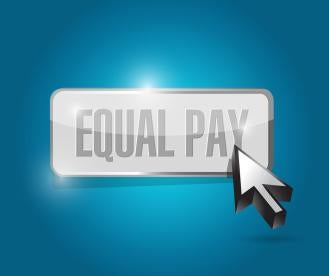As we previously reported to you, pay history has recently become a topic of much discussion among federal, state and municipal legislatures. Many jurisdictions around the country are considering laws that would quell employer inquiries into candidate pay history. The underlying purpose of these laws is to level out the historical pay gap between men and women, which pay history ban proponents argue is perpetuated when employers base starting salaries on candidates’ prior earnings. In fact, many of these pay history bans are part of a larger scheme of pay equality laws. Amidst this movement, the Ninth Circuit announced last week that salary history alone can be used to determine new employee starting salary without violating federal equal pay law.
In Rizo v. Fresno County, Plaintiff Aileen Rizo, an educational consultant, filed suit against her employer, Fresno County, under the federal Equal Pay Act (EPA) after learning she made less than her male counterparts for the same work. The EPA, which prohibits pay disparity between men and women who perform the same work, has a strict liability standard, such that a plaintiff must only prove a pay disparity between men and women who perform the same work exists, and not that the disparity is an intentional act of discrimination by the employer. Because all of Rizo’s counterparts were male and made a higher salary than she did, the County conceded the pay disparity and defended itself by arguing that it fell under an exception to the EPA because it used “any other factor other than sex” to set Rizo’s and her co-workers’ starting salaries. Specifically, the County said it determined incoming salary for new employees by offering them a 5% pay increase above their most immediate prior salary. The County argued this was an objective formula entirely independent of gender.
In considering the County’s motion for summary judgment, which asked the Court to dismiss Rizo’s EPA claim based on this defense, the United States District Court for the Eastern District of California found that using salary history to set current salary was not “any other factor other than sex.” The trial court reasoned that such a practice “is so inherently fraught with the risk … that it will perpetuate a discriminatory wage disparity between men and women that it cannot stand, even if motivated by a legitimate non-discriminatory business purpose.” For this reason, the District Court concluded the practice could not be valid under the EPA.
On appeal, the Ninth Circuit declared the District Court’s outcome was in direct contradiction to Ninth Circuit precedent interpreting the EPA. The Ninth Circuit pointed to its prior decision in Kouba v. v. Allstate Insurance, Co., in which the plaintiff alleged Allstate violated the EPA. Allstate’s pay system at issue considered pay history, among other factors, in setting new employee salaries. The plaintiff in that case alleged that pay history was the sole cause of the alleged pay disparity. Allstate responded, stating that, to the extent its consideration of pay history did create a pay disparity between men and women, pay history was a “factor other than sex” and therefore the practice did not violate the EPA. The Ninth Circuit agreed. The Court of Appeals specifically found that employers can use pay history to set incoming salary as long as the practice was to effectuate a business policy, and was used reasonably in light of this policy and its other business practices. The Ninth Circuit determined that establishing these factors satisfies the affirmative defense that any resulting salary disparity was determined by a “factor other than sex.”
Based on Kouba, the Ninth Circuit reversed the District Court’s decision in Rizo and remanded the case so the trial court could analyze Fresno County’s business reasons offered to support the pay history practice and determine whether the County used prior salary “reasonably in light of these business reasons and other practices.”
Thus, while this outcome does not automatically green-light pay history-based salary systems, employers in the Ninth Circuit that can establish a business policy and reasonableness of the system may escape the EPA’s harsh penalties. But, as we previously cautioned, this outcome may be in conflict with other affirmative laws prohibiting pay history inquiries, which may end up providing more protection for pay equality than the federal scheme.




 i
i

